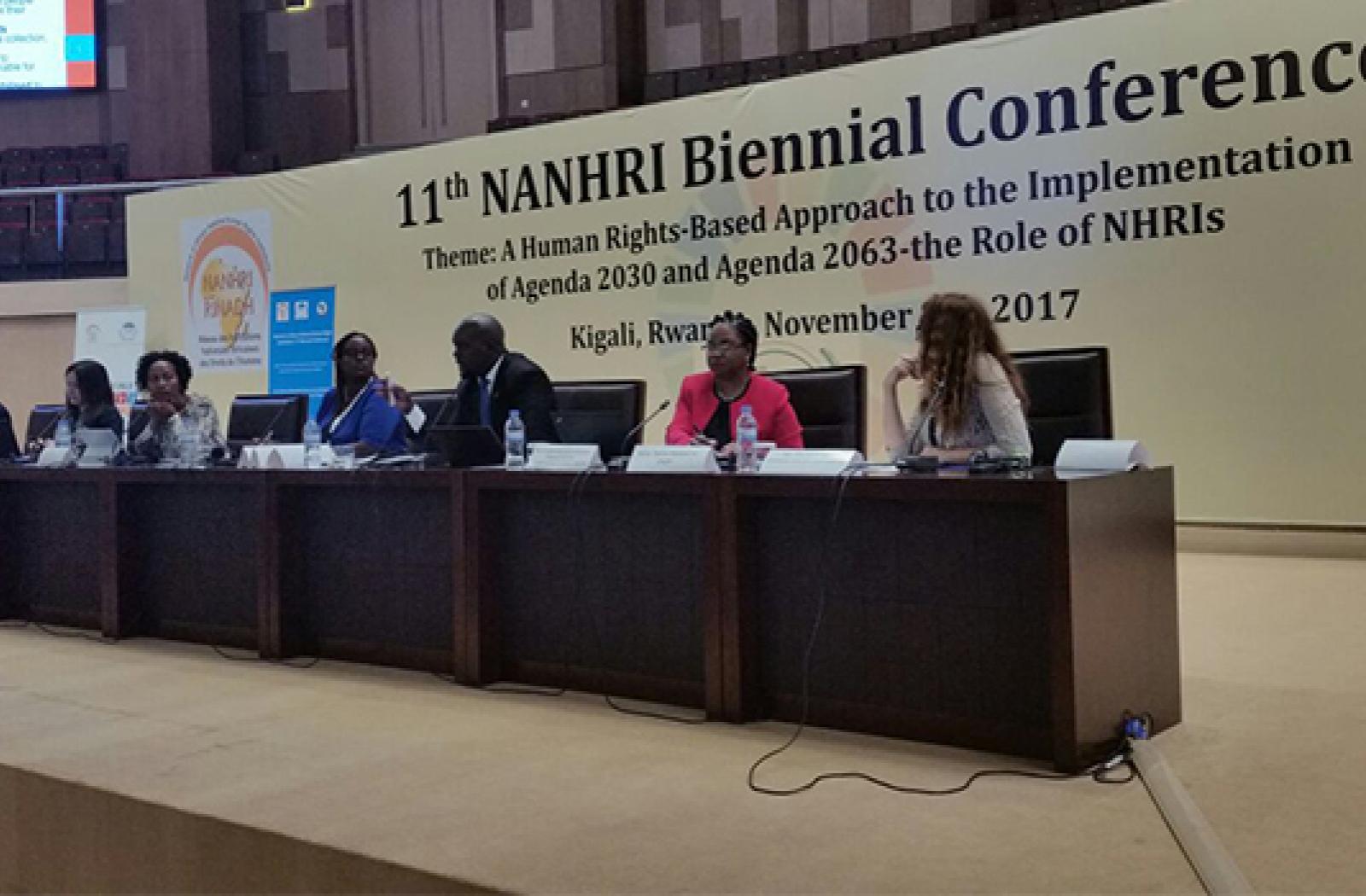A coordinated response to tackle the scourge of child marriage has never been more pressing in the Commonwealth, where a child is married every 17 minutes.

A coordinated response to tackle the scourge of child marriage has never been more pressing in the Commonwealth, where a child is married every 17 minutes.
While national human rights institutions in 20 Commonwealth countries are committed to ending child marriage, the Commonwealth Secretariat is urging more member states to sign the Commonwealth’s Kigali Declaration, ensuring its impact is achieved through monitoring results.
The declaration sets out a clear framework for national human rights institutions to strengthen and calibrate their efforts to prevent and eliminate child, early and forced marriage (CEFM). It also contains a number of key commitments, including the monitoring the enforcement of legislation, improving data collection and promoting compulsory education for girls.
Diana Copper, Human Rights Adviser at the Commonwealth Secretariat, said, “The need for action to end child marriage has never been more urgent. Every 17 minutes, a child in the Commonwealth is forced into marriage.
“Research indicates that if current trends continue then approximately 8.8 million girls a year will be married across the Commonwealth. That amounts to 24,000 every single day.
“That’s why the Secretariat is working with national human rights institutions through the framework of the Kigali Declaration to end this harmful practice.
“But if we are to be even more effective, we need to understand whether what we are doing is actually affecting the prevalence of child marriage. That’s why we’re supporting national institutions to better track and report on progress.”
Her comments followed an event organised by the Commonwealth Secretariat in Kigali, in partnership with the UN’s Office of the High Commissioner for Human Rights (OHCHR), to assess the implementation of SDG 5 (Target 5.3), which is to eliminate harmful practices including child, early and enforced marriage.
It was attended by representatives of OHCHR, the Global Partnership for Sustainable Development Data, and the Network of African National Human Rights Institutions, and provided an opportunity for institutions to discuss how they are monitoring the impact of their work.
The Chief of the National Human Rights and Regional Mechanisms Section at the OHCHR, Vladlen Stefanov, said, “We are now all aware that child and forced marriage is a human rights violation. It is our collective responsibility to break the conspiracy of silence and take action to strengthen all the protection systems and accountability mechanisms that will enable the effective prevention and response to child and forced marriage.”
The event was part of the 11th Biennial Conference of the Network of African National Human Rights Institutions (NHRI), which took place in Rwanda between 7 – 10 November.
44 African NHRIs, in addition to the Office of the High Commissioner for Human Rights, the UN High Commissioner for Refugees, the African Union and the European Union all took part in the conference.
Participants reviewed the implementation progress of the Sustainable Development Goals (SDGs) by national human rights institutions across the African continent. They focused specifically on SDG 5 (gender equality), SDG 10 (reduced inequalities) and SDG 16 (peace, justice and strong institutions).


